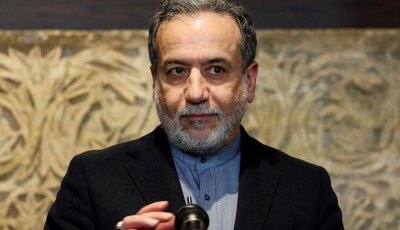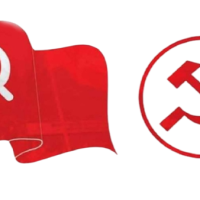Global Markets Plunge Amid Escalating US-China Trade War

Panic selling gripped global financial markets on Monday as US President Donald Trump stood firm on sweeping new tariffs, escalating tensions with China and fueling fears of an impending global recession.
Beijing announced retaliatory tariffs over the weekend, deepening the trade standoff between the world’s two largest economies. The move came in response to Trump’s imposition of a baseline 10 percent import tariff on foreign goods, with higher rates for key trading partners, including the European Union, Japan, Taiwan—and even close ally Israel.
While most countries have held off on retaliating, China struck back late Friday with a dramatic 34 percent tariff on all US imports, effective April 10, intensifying market anxiety.
“This is blunt-force economic warfare,” said Stephen Innes of SPI Asset Management. “Markets are clearly signaling that global demand is collapsing, and a worldwide recession is rapidly approaching.”
On Monday, stock markets across Asia took a severe beating. Japan’s Nikkei plunged 6.5 percent, having dropped as much as 8 percent in early trading. Hong Kong’s Hang Seng Index nosedived nearly 10 percent, and Shanghai’s Composite Index fell more than 4 percent. Taiwan and Singapore also experienced sharp losses, with their main indexes plummeting 10 percent and 8.5 percent, respectively.
The sell-off extended to the US as futures for major Wall Street indices tumbled Sunday night, pointing to more volatility ahead. Oil prices also slid, with US crude falling below $60 a barrel for the first time since April 2021.
Despite mounting global pressure, President Trump doubled down on his trade stance.
“Sometimes you have to take medicine to fix something,” Trump told reporters aboard Air Force One. “World leaders are dying to make a deal.”
White House officials confirmed that more than 50 countries have reached out seeking negotiations or exemptions. Vietnam, which counts the US as its top export market, has formally requested a 45-day delay on the newly announced 46 percent tariffs.
Still, Trump has shown no signs of backing down.
“At this moment, he’s created maximum leverage for himself,” said Treasury Secretary Scott Bessent. “We’ll have to see what these countries offer—and whether it's credible.”
Israel’s Prime Minister Benjamin Netanyahu is set to become the first world leader to meet with Trump following the tariff announcement. Israel was hit with a 17 percent tariff despite its longstanding alliance with Washington.
Meanwhile, UK Prime Minister Keir Starmer warned of a new global order in a weekend op-ed.
“The world as we knew it is gone. The future will depend on strategic deals and strong alliances,” he wrote.
Peter Navarro, Trump’s top trade adviser, brushed off investor concerns, saying, “You can’t lose money unless you sell,” and predicted “the biggest stock market boom we’ve ever seen.”
While Russia was spared from the new tariffs, officials cited ongoing negotiations over Ukraine and existing sanctions as the reason for its exclusion.
President Trump has repeatedly argued that the US has been taken advantage of in global trade and insists tariffs are a tool to correct decades of imbalances.
“Someday people will realize that tariffs, for the United States of America, are a very beautiful thing!” Trump posted on Truth Social.
However, many economists warn that tariffs are likely to increase costs for US consumers—something the White House continues to downplay.
“I don’t think you’re going to see a big effect on the US consumer,” said Kevin Hassett, head of the National Economic Council.
As markets brace for further fallout, the world watches closely to see if Trump’s hardline tactics will bring new deals—or deeper economic damage.











_8.png)








तपाईको प्रतिक्रिया दिनुहोस